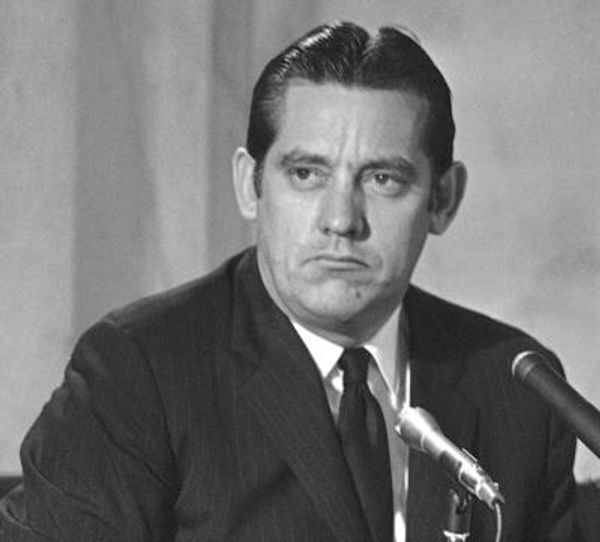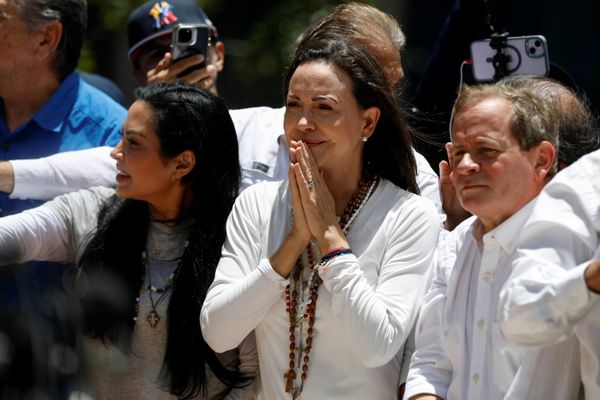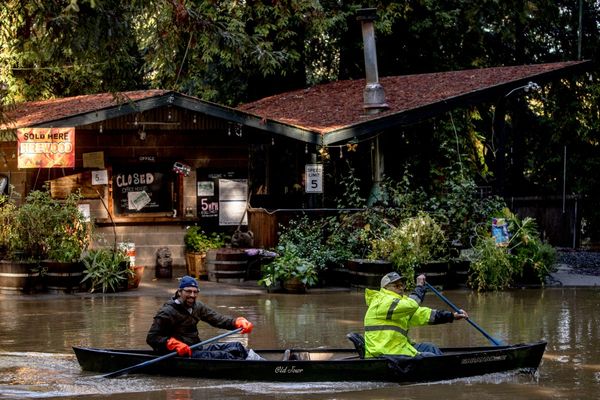
In Tennis terms the Central European Rally represented the first real match point moment for Thierry Neuville in his relentless 12-year quest to lift the World Rally Championship title.
The scene was set perfectly. An asphalt rally where being first on the road is advantage, featuring stages in Germany not a million miles from his and his Hyundai team’s home. But one thing that the WRC can guarantee in spades this season is unpredictability.
As has often been the case for Neuville - a five-time championship runner-up - the Belgian was made to wait for glory again as fate intervened while on course for a career defining moment. Neuville only needed to outscore team-mate Ott Tanak by two points to seal rallying’s ultimate prize. But after a wild Sunday, where even world champions made errors, it was his nearest rival that triumphed to take the title fight to next month’s Japan finale.
“Obviously we came here with the hopes of winning the drivers’ and co-drivers’ titles in Germany, and a lot of supporters came down to line the stages to live an incredible moment with us, but unfortunately it wasn’t to be," said Neuville.
The phrase “it wasn’t to be” was apt for several drivers as the Central European Rally was in the words of eventual winner Tanak a “very demanding rally.” It was demanding on several levels with crews completing stages in the Czech Republic, Germany and Austria. Throw in multiple surface changes, unpredictable weather and increasingly dirty roads and you have the perfect recipe for an unpredictable rally.
The start was however predictable as Toyota’s Sebastien Ogier ended Thursday’s two Czech stages following the ceremonial start in Prague with a 0.9s lead over Neuville, who was sporting some cosmetic damage to his right front wheel arch from hitting a bale in the super special. The surprise was the driver in third spot as Hyundai’s Andreas Mikkelsen, who had previously struggled to tame the i20 N on asphalt, come to the fore. A decision to go his own way on set up rather than following Neuville and Tanak helped the Norwegian, who is facing an uncertain future for 2025, come alive.
Mikkelsen’s bright start however faded by stage five (Sumavske Hostice 1 - 16.85 km). Having dropped to sixth overall, Mikkelsen drifted wide on the leaf covered road and clattered a fence that tore the front from his i20 N resulting in retirement. Mikkelsen did rejoin the rally on Saturday only for a puncture to end any hopes of Super Sunday points.

Hybrid power had been a talking point in the lead up to the event, with the WRC potentially set for another U-turn with its 2025 technical regulations by removing this element due to a recent change in the user guide issued by Compact Dynamics, the supplier of the control units. The new regulations came into force in Greece last month stating that on safety grounds hybrid units can no longer be reset and if they fail on event they must be replaced and sent to the manufacturer for a repair adding significant costs to the teams.
By stage four, nearly half of the Rally1 cars had suffered hybrid failures. Toyota’s rising star Sami Pajari, making his first Rally1 outing on asphalt driving a fourth GR Yaris was the first to lose the hybrid boost before Mikkelsen, and the M-Sport duo Adrien Fourmaux and Gregoire Munster lost the use of hybrid following a particularly hard landings from the same jump in the Strasin 1 - 26.69 km - the longest of the rally.
Although, the lack of hybrid was the least of Fourmaux’s concerns having been strangely 1m33.4s off the pace in seventh overall come the end of Friday. The frustrated Frenchman declared that he was struggling with “everything” on the car and that “something was wrong”, which required a thorough investigation.
“I’m happy to be at the end. It is easy to make a mistake and I knew that the only thing that was important was to make it to the end” Thierry Neuville, Friday
At the front though, Neuville, who has had to engage damage limitation mode starting first on the road for the last seven consecutive gravel rallies, was thriving with the road position advantage on asphalt. The Hyundai driver hauled himself into the rally lead by stage five before going on to extend his lead over Ogier to 6.4s on slippery roads that were hard to judge and made even worse by light drizzle. With Tanak a further 1.4s back in third and Toyota’s Elfyn Evans only 15.1s in arrears, the battle for victory was tight, but Neuville knew if he could maintain this display the world title would be his come Sunday.
“I’m happy to be at the end. It is easy to make a mistake and I knew that the only thing that was important was to make it to the end,” said Neuville.
But the rally gods chose not to shine on Neuville on Saturday as fog made the morning stages that straddled the Germany/Austria border wet, and like driving on ice. The conditions were responsible for several drivers making unscheduled trips to the scenery, including Neuville.
Neuville’s lead had been reduced to 0.8s after Tanak produced a stunning time to win stage nine but according to the 2019 world champion “Cyril [Abiteboul, Hyundai team boss] didn’t like our first stage time and we started to get some messages”. Abiteboul clarified that these messages were made with the manufacturers title fight against Toyota in mind, reminding Tanak of the risks he should avoid taking.

Tanak’s effort briefly elevated his i20 N to second ahead of Ogier before the Estonian dropped his pace too much in stage 10 (Beyond Borders, 24.433km) and fell back behind the Toyota that was only two second behind leader Neuville.
Neuville this year has rarely made an error, a loss of concentration in Sardinia, being his only real mistake. It is why he is leading the championship having scored points in every round. However, in stage 12, the Belgian made two costly mistakes. A 360 degree spin after touching the wet grass was recovered quickly but moments later he careered off the road luckily onto a large grass run-off area. In an effort to return to the road, he became briefly stuck in a ditch. More than half a minute was lost as he dropped to fourth and effectively his hopes of sealing a world title had evaporated.
“It was two spins, I mean the first one was a basic spin and the second one the pacenote was too fast,” Neuville told Motorsport.com. “It was a long corner and you don’t see the exit very well because it is uphill and when I entered the corner, it turned more than my pacenotes told me.”
Neuville, now resigned to bringing the car home, wasn't the only driver to be caught out. Ogier who inherited the lead survived a small moment, but admitted “it was easy to make a mistake” while M-Sport duo Fourmaux and Munster both enjoyed trips into fields, now with working hybrid units.
Fourmaux’s was the most spectacular as he skidded onto the grass and brushed the trees. However, the mysterious issue with his car came to light. M-Sport had made wholesale changes overnight but didn’t change the front differential which had developed a fault leaving that effectively reduced the Puma to a rear wheel drive only version.
“As soon as there is dirt [on the road] it is hard to get it to go straight. It is undriveable,” said Fourmaux, whose day came to an end when he lost the rear of his Puma in stage 10 and the impact required a wheel change. Although damage to the hybrid cooling package put him out of the rally until Sunday where he produced much better speed.
The battle for the rally victory turned into a three-way fight. Tanak reduced Ogier’s advantage to 1.1s after stage 13 before Ogier reeled off two stages wins to end the day with a slender 5.2s margin, while an under the weather Evans was third, 14.0s in arrears. It was looking very good for Toyota in the manufacturers’ battle with Ogier picking up 18 provisional Saturday points and Evans 13.

The WRC’s new points system is complex and divides opinion, but it has certainly ensured that Sundays are no longer sedate affairs - a conveyer belt of action and chaos is a better description as crews fight for 12 crucial Super Sunday points.
Hyundai has been the master of this new discipline while it has been a weakness for Toyota. The latter proved true as another ‘black Sunday’, as Toyota team principal Jari-Matti Latvala calls them, unfolded.
First Toyota lost Pajari who had been highly impressive to head into Sunday sitting in fifth position. However, the young Finn came into left hander in stage 15 (Am Hochwald, 12.17km) too fast resulting in his GR Yaris finding a ditch and being pitched into a roll.
"I think it was a soft roll but I don't know why it happened, in my opinion my pacenote was okay and there was nothing really surprising on that corner,” said Pajari.
With every pass, the stage became increasingly dirty, aided by the placement of anti-cut devices or the lack thereof. Efforts to curb cutting this year had been praised by the drivers earlier in the event but conditions were evolving fast in the opposite direction for the leading runners.
"I feel angry with myself in the moment and I’m very sorry for the team" Sebastien Ogier after crashing
This would prove to be the downfall of rally leader Ogier as the eight-time world champion made costly mistakes for the third event in succession. Ogier lost the rally lead in the first pass through (Am Hochwald, 12.17km) where he misjudged the braking at a junction and ran onto the grass, handing a 1.9s advantage to Tanak.
This gap was reduced to 1.5s before the second pass that proved even more damaging. Six hundred metres into the penultimate stage of the rally Ogier was caught out on the dirt at a fast right and clattered into the trees. Normally a master of controlling his emotions the accident provoked screams of anger as he clambered out of the car. It was the only stage where route note crews were not allowed to pass to provide up to date road evolution information to the drivers.
"I feel angry with myself in the moment and I’m very sorry for the team, I tried my best," said Ogier. "It was really my main target to help them achieve the manufacturers’ title. I think I was doing a good job so far but unfortunately it is a third weekend in a row that has not gone my way. It is a tough time."

With the shockwaves caused by Ogier’s accident, Abiteboul once again reminded Tanak of the risks at stake and his driver duly delivered a steady Power Stage time, missing out on the bonus points, to seal a 21st WRC victory and perhaps one of the toughest of his career.
“We have seen every day that so much is happening and in some stages it [drama[ is happening for many cars clearly it is very demanding rally. It is never easy but I’m happy to come out without mistakes,” said Tanak, who took the victory by seven seconds from Evans, with Neuville third.
The returning Takamoto Katsuta, benched for Rally Chile, finished fourth but impressed throughout and proved to be a life saver for Toyota after claiming the maximum 12 Super Sunday points. Despite Ogier's late exit Toyota actually decreased Hyundai’s lead in the manufacturers’ title race to 15 ahead of the Japan finale but it could have been even closer.
“For sure it was big big pressure before this rally and it was such a difficult moment I had last month, but I have had strong support from the team and the people around me,” said Katsuta, who finished ahead of M-Sport’s Munster, who recorded a career-best equalling fifth.
For Neuville, it wasn’t the title coronation he’d dreamt but he will take a 25-point lead over Tanak into a Japan decider, adding “It wasn’t to be this weekend. Sorry for the team for a small mistake but even world champions make mistakes.”
The WRC title battle is most certainly not over but its very much a case of championship point to Neuville. One thing that is for certain a Hyundai driver will win the championship for the first time.
“I guess it depends how much Thierry wants it,” said Tanak. “If he is smart in Japan and does a good job then nobody has a chance, but we also have a responsibility for the manufacturers championship it is still a big job ahead of us so we can’t really focus only on drivers title.”








